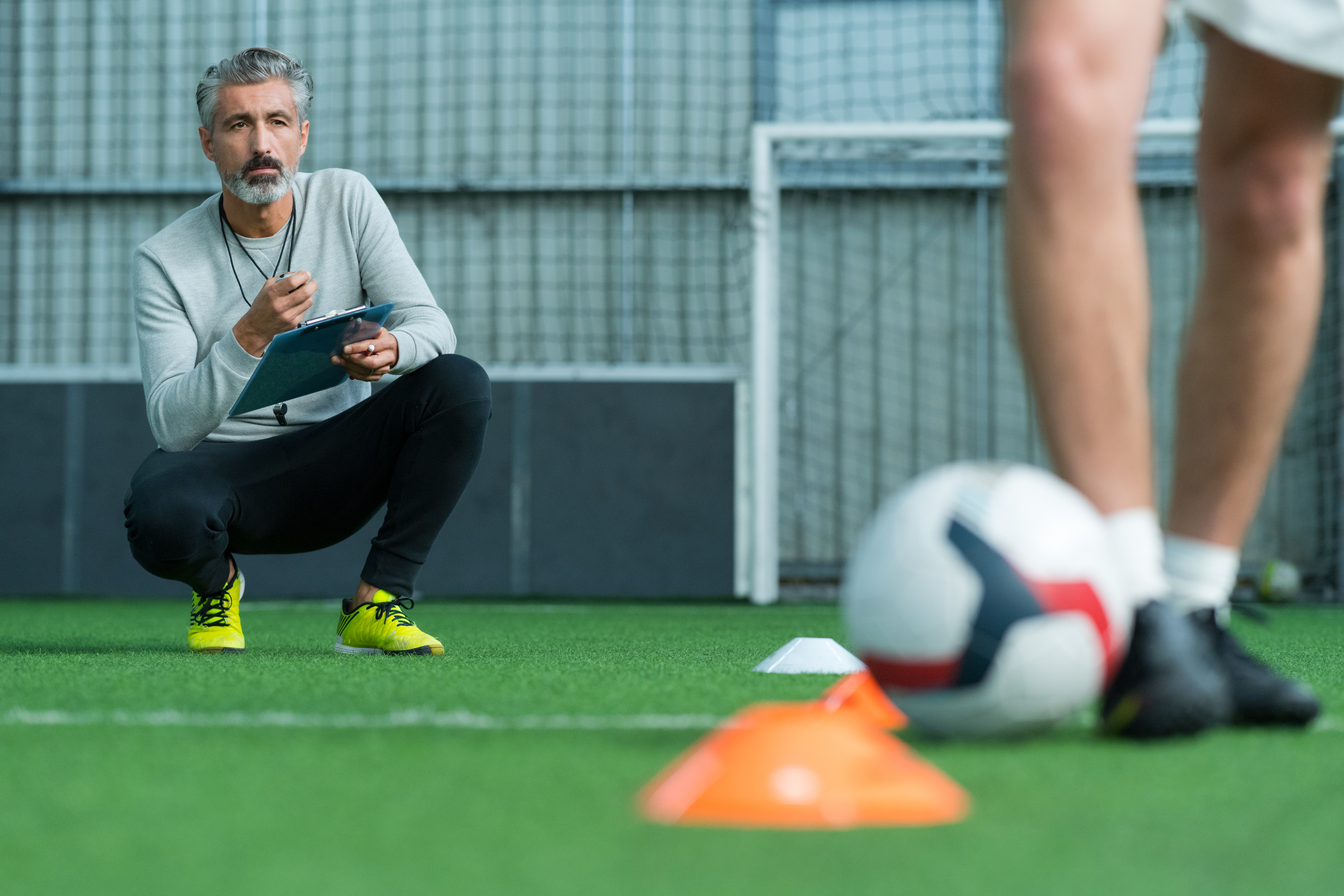Træneren som gatekeeper, ressourcedistributør og partner for idrætstalenter
Magt og etik i talentudviklingens relationer
DOI:
https://doi.org/10.7146/ffi.v34i1.114881Resumé
Artiklen belyser relationer mellem unge talentfulde atleter og deres trænere. Ved at læse på tværs af interviewmateriale med unge idrætstalenter finder vi tre former for nøglerelationer trænere kan have i talentudviklingen, henholdsvis som gatekeepere, ressourcedistributører og partnere. Analyserne viser, at trænere indtager en nøgleposition i talentudvikling og talentudviklingsmiljøer, hvor de har en central betydning for tilblivelsen af unge talenter. Det diskuteres om den nøgleposition i talentudviklingen også indebærer et etisk ansvar for dem, der ikke kommer gennem gaten, får ressourcer distribueret eller opnår et partnerskab.
Referencer
Bailey, R. & Toms, M. (2011). Coaching and ethics of youth talent identification: rethinking luck and justice. In A. R. Hardman & C. Jones (Eds.), The ethics of sports coaching. (pp. 149-164). Routledge.
Becker, A. J. (2009). It’s Not What They Do, It’s How They Do It: Athlete Experiences of Great Coaching. International Journal of Sports Science & Coaching, Vol 4, No. 1(9), 93-119. https://doi.org/10.12601747-9541.4.1.93
Epstein, D. (2014). The sports gene: Inside the science of extraordinary athletic performance. New York: Current.
Fox, N. & Alldred, P. (2017). Sociology and the New Materialism. Theory, Research, Action. London: Sage.
Hardman, A., Jones, C. & Jones, R. (2010). Sports coaching, virtue ethics and emulation. Physical Education and Sports Pedagogy, Vol. 15, No. 4, 345-359. https://doi.org/10.1080/17408980903535784
Henriksen, K. (2010). The Ecology of Talent Development in Sport: A Multiple Case Study of Successful Athletic Talent Development Environments in Scandinavia, Doctoral Thesis. Odense: University of Southern Denmark.
Henriksen, K., Stambulova, N. & Roessler, K. K. (2010). Holistic approach to athletic talent development environments: A successful sailing milieu. Psychology of Sport and Exercise, 11 (3), 212-222. http://dx.doi.org/10.1016.j.psychsport.2009.10.005
Højgaard, L. & Søndergaard, D. M. (2010). Multimodale konstitueringsprocesser i empirisk forskning. In S. Brinkmann & L. Tanggard (Eds.), Kvalitative metoder. København: Hans Reitzels Forlag.
Jowett, S. & Wylleman, P. (2006). Editorial: Interpersonal relationships in sport and exercise settings: Crossing the chasm. Psychology of Sport and Exercise, 2006(7), 119-123. Elsevier.
Karen, D. & Washington, R. E. (2015). Sociological Perspectives on Sport. The Games Outside the Games. London & New York: Routledge.
Kilger, M. (2017). Talking talent. Narratives of youths sports selection. Stockholm: Stockholm University.
Kilger, M. & Jonsson, R. (2015). Talent Production in Interaction: Performance Appraisal Interviews in Talent Selection Camps. Communication & Sport. June 28, 2015, 1-20. Sage.
Krogh Christensen, M. (2009). “An Eye for Talent”: Talent Identification and the “Practical Sense” of Top-Level Soccer Coaches. Sociology of Sport Journal, Vol. 26(3), 365-382.
Larsen, C.H., Alfermann, D., Henriksen, K. & Christensen, M.K. (2013). Successful Talent Development in Soccer: The Characteristics of the Environment. Sport, Exercise and Performance Psychology, 13, 2, 190-206. http://dx.doi.org/10.1037/a0031958
Martindale, R. J., Collins, D. & Abraham, A. (2007). Effective Talent Development: The Elite Coach Perspective in UK Sport”. Journal of Applied Sport Psychology, 19(2), 187-206. Routledge. https://doi.org/10.1080/10413200701188944
Mialet, H (2006). Do Angels Have Bodies: Two Stories About Subjectivity in Science, The Cases of William X and Mr. H. In E. Selinger & R. P. Crease (Eds.), The Philosophy of Expertise (pp. 332-346). New York: Columbia University Press, 246-279.
Mialet, H. (2009). Making a Difference by Becoming the Same. International Journal of Entrepreneurship and Innovation. 10/4, 09, 257-265.
Mol, A. & Law, J. (2004): Embodied Action, Enacted Bodies: The example of Hypoglycemia. Body & Society, 10(2-3), London: Sage, 43-62.
Nielsen, J. C. & Olesen, J. S. (Eds.) (2019): Talentudvikling og elitesport i skolen. Århus: Aarhus Universitetsforlag.
Nielsen, J. C., Olesen, J. S. & Skrubbeltrang, L. S. (2017). Idrætselevernes tilblivelse og transitioner – Idrætsklasser som ny standard for tidlig talentudvikling i Danmark. Aarhus Universitet.
Nussbaum, M. C. (2010). Not for Profit. Why Democray Needs the Humanities. Princeton and Oxford: Princeton University Press.
Ronglan, L. T. (2015). Elite sport in Scandinavian welfare states: Legitimacy under pressure? International Journal of Sport, Policy and Politics, 7(3), 345-363. https://doi.org/10.1080/19406940.2014.987309
Russell, J., Martindale, R., Collins, D. & Daubney, J. (2013). Talent development: A guide for practice and research within sport. Quest, 7 (4), 353-375. https://doi.org/10.1080/00336297.2005.10491862
Skrubbeltrang, L. S., Olesen, J. S. & Nielsen, J. C. (2015). How to stay becoming – living up to the code of conduct in a sports class. Ethnography and Education, 11(3), 371-387. https://doi.org/10.1080/17457823.2015.1109467
Stambulova, N. B., Engström, C., Franck, A., Linnér, L., & Lindahl, K. (2015). Searching for an optimal balance: Dual career experiences of Swedish adolescent athletes. Psychology of Sport & Exercise, 21, 4-14. http://dx.doi.org/10.1016/j.psychsport.2014.08.009
Storm, L. K., Henriksen, K., Larsen, C. H. & Christensen, M. K. (2014). Influential Relationships as Contexts of Learning and Becoming Elite – Athletes’ Retrospective Interpretations. International Journal of Sports Science & Coaching, Vol. 9, No. 6, 1341-1356. https://doi.org/10.1260/1747-9541.9.6.1341
Team Danmark (2017). ATK 2.0 Træning af børn og unge. Team Danmark. Lokaliseret 8.6.2017: https://umbraco.teamdanmark.dk/media/1667/atk-20_low.pdf
Wylleman, P., Alfermann, D., & Lavellee, D. (2004). Career transitions in sport. European perspectives. Psychology of Sport and Exercise, 2004, 5, 7-20. Elsevier. https://doi.org/10.1016/S1469-0292(02)00049-3
Wylleman, P. & Lavellee, D. (2004). A developmental perspective on transition faced by athletes. In M. Weiss (Ed.), Developmental sport and exercise psychology (pp. 507-527). Morgantown: WV: Fitness Information Technology.

Downloads
Publiceret
Citation/Eksport
Nummer
Sektion
Licens
Forfattere, der publicerer deres værker via dette tidsskrift, accepterer følgende vilkår:
- Forfattere bevarer deres ophavsret og giver tidsskriftet ret til første publicering, samtidigt med at værket er omfattet af en Creative Commons Attribution-licens, der giver andre ret til at dele værket med en anerkendelse af værkets forfatter og første publicering i nærværende tidsskrift.
- Forfattere kan indgå flere separate kontraktlige aftaler om ikke-eksklusiv distribution af tidsskriftets publicerede version af værket (f.eks. sende det til et institutionslager eller udgive det i en bog), med en anerkendelse af værkets første publicering i nærværende tidsskrift.
- Forfattere har ret til og opfordres til at publicere deres værker online (f.eks. i institutionslagre eller på deres websted) forud for og under manuskriptprocessen, da dette kan føre til produktive udvekslinger, samt tidligere og større citater fra publicerede værker (se The Effect of Open Access).




